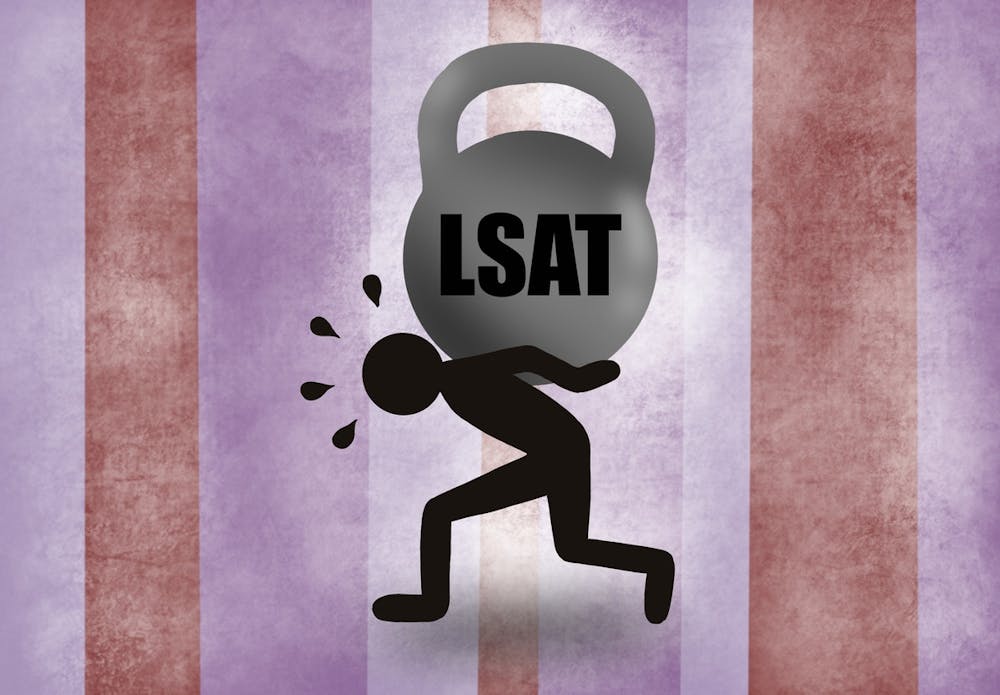On Oct. 4, Jacob Gelman ’25 left the Duke University School of Law admissions information session with the same confusion he had brought with him.
After an hour of listening to admissions officers detail the school’s application cycle, requirements, strategies and more, Gelman still did not find the answer to his most pressing question: Will taking classes Satisfactory/No Credit penalize him in the law school admissions process?
“I’ve heard from other pre-law students that taking courses S/NC can sometimes stunt your application,” he said. “I know there’s a huge emphasis placed on (grade point average) in this process, and no one has been able to answer if (S/NC) will cause problems or not.”
Gelman shared that he is reluctant to take courses S/NC because of his law school aspirations, even though the University’s unique curriculum and grading system were a primary motivation for his enrollment.
“I fell in love with Brown’s encouragement of academic curiosity, and now I feel a bit worried that I’m stifling it for myself,” Gelman said.
Alexandra Herrera ’23, another student interested in law school who previously wrote for -post, also said the University’s unusual flexibility drew her to enroll, but she does not share the same inhibitions regarding taking courses S/NC.
“I’ve heard some people say you shouldn’t take anything within your concentration S/NC,” she said. “But the point of the Open Curriculum is to explore, and (taking classes S/NC) is just applying the Brown philosophy. That’s why you came here.”
Herrera explained that she utilized the S/NC grading option during her first two years to explore her initial interest in law but has since taken fewer courses S/NC.
“I do feel more inclined to take classes for a grade now,” she said. “But that’s because I’m exploring less since I’m a senior, not because of concerns regarding S/NC and law school.”
Ben Thornton ’24 also tends to take classes for a grade but is not intimidated by S/NC ambiguity.
“I take my classes for a grade because, in my experience, that has pushed me the most as a learner and is the grading system that I thrive the most in,” he said. “But I’m not worried about how taking a class S/NC will look for law school.”
Thornton explained that getting the most out of the undergraduate learning experience is a top priority for him and that graduate school hypotheticals are not his main concern.
“At a place like Brown where you have this Open Curriculum and are designing your own schedule and grading system, I think setting up a system that works best for you should be at the forefront of those decisions,” he said.
“I do think ABC grades show more about a student’s performance versus S/NC, just objectively looking at the numbers,” Thornton added. “It’s a more accurate and precise indication, … so it makes sense to put more stock into ABC grades. Admissions officers making decisions with more precise data is a justified thing to do.”
The University’s pre-law advising team — composed of Ari Gabinet, senior fellow in international and public affairs; Lindsay Garcia, assistant dean of the college for junior/senior studies and recovery and substance-free student initiatives; and Betsy Shimberg, senior associate dean of the college for co-curricular and experiential learning — echoed the importance of grades as indicators of academic capability in an email to The Herald.
“We recommend that students be judicious in selecting the S/NC grading option,” they wrote. “Taking all or a majority of classes S/NC does not produce a comprehensive picture of an applicant’s readiness for graduate-level work.”
Despite their acknowledgement of the significance placed on grades in the law school admissions process, the University’s pre-law advising team wrote that there is no “reliable data” from law schools that would allow them to say that “this many S/NC choices is OK; that many is not.”
The team wrote that they encourage undergraduates to take advantage of the University’s unique curricular and grading setup, advocating for academic curiosity and exploration with the usage of whatever grading system makes the most sense for each individual student.
“Academic excellence and rigor are important in law school admissions but so are imagination, creativity, integrity and individuality,” they wrote. “The S/NC option is intended to allow students to use the Open Curriculum without excessive risk to (their) transcript.”
Ultimately, the pre-law advising team wrote that they hope students pursue their academic interests freely and without inhibitions stemming from the fear of penalization in law school admissions.
“Good grades and a good LSAT are important, but the law school admissions process is far more nuanced than just plugging statistics into an algorithm,” they wrote. “There are too many factors involved to have a one-size-fits-all solution for every student.”
“Judicious use of the S/NC option is consistent with the fundamental aspect of the Brown education,” they wrote. “Used in that way, (the grading option) can suggest the kind of creativity and intellectual curiosity that makes good law students and great lawyers.”

Sofia Barnett is a University News editor overseeing the faculty and higher education beat. She is a junior from Texas studying history and English nonfiction and enjoys freelancing in her free time.





